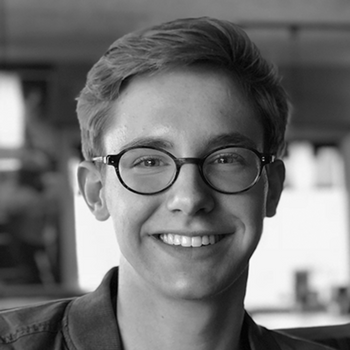Students protest reformed racist's message of 'forgiveness'
A group of Carleton College students protested a talk by a reformed white supremacist, saying the message of “tolerance and forgiveness” conflicts with their efforts to fight “oppression.”
The recently-established “Carls Talk Back” group has issued an extensive list of demands for initiatives designed to “eradicate systems of oppression that are currently affecting marginalized communities on this campus,” which the group says include “racism, classism, sexism, heterosexism, and ableism.”
To combat those forms of “institutional violence,” the students are calling for such initiatives as installing new washer/dryers, allocating $4,000 for “mandatory diversity training,” creating an Africana Studies department, and establishing “permanent gender-neutral bathrooms in all buildings.”
[RELATED: Cal Poly proposes fees on non-residents to fund diversity efforts]
On February 9, the group protested a convocation speech by Arno Michaelis, a former white supremacist and the author of My Life After Hate, a book about his conversion from skinhead to anti-racist activist.
In an official statement, Carls Talk Back explained that the demonstration was not directed against Michaelis himself, but rather was intended to protest the rhetoric of “forgiveness and compassion” the university used to describe the event.
“Imagining only positive and forgiving responses to hatred and marginalization invalidates and minimizes the variability of reasonable responses, many of which are difficult to digest,” the statement declared, arguing that this approach “grossly oversimplifies the solution to systematic oppression” and “wrongly shifts the responsibility onto those most affected by that oppression.”
[RELATED: TCU students demand $100M for minorities, ban on ‘hateful speech’]
“Being that tolerance and forgiveness in the face of harm and hatred seems to be foundational to Michaelis’ reformation, the college’s decision to invite him here sends a message that directly conflicts with the efforts of students of color on campus,” the statement continued. “It also places these students in a potentially harmful and triggering predicament as a result of Michaelis’ past history of bigotry and direct physical violence directed towards communities that these students consider themselves apart [sic] of.”
Circling back to the group’s original demands, the statement concludes by reiterating the students’ commitment to ensuring that “our administration is held responsible for the harms they [sic] cause,” saying, “this is bigger than February 9th.”
[RELATED: Prof: Punishing protesters promotes ‘white supremacy’]
The list of demands, articulated in an open letter to administrators supplemented by a timeline for implementation, insists that Carleton must “challenge” the systems of oppression that exist on campus by “redistributing power and resources in a way that is radically equitable.”
The demands, with deadlines ranging from spring 2018 to spring 2019, escalate in significance as time progresses, with this semester's demands consisting mostly of maintenance requests.
By fall 2018, the protest group demands that the university make “Carl Talks,” a lecture series centered around social justice issues, be made “mandatory for all incoming students,” while insisting that the school also “create a committee to oversee all diversity and inclusion training for students.”
Additionally, the students want the university to completely “remove the standardized test admissions requirement,” and “increase the number of domestic and international students of color to match the proportions of the country” by 2019.
[RELATED: Harvard prof calls for racial ‘quota system’ in higher ed]
In terms of academic demands, the group calls for the expansion of the “Africana Studies Major/Minor Program” into its own department, and demands that all classes be cancelled on Muslim, Jewish, and Hindu holidays.
“The age of complacency toward change at Carleton College ends now,” the demand letter concludes, giving the university until February 23 to respond and threatening “demonstrative escalation” if it does not meet the deadline.
Many students expressed support for the demands, including student Sarah Chebli, who appreciated the group’s efforts because “they’re listening to what the students wanted.”
“I like what they’re defending, because they’re listening to what the students wanted. I support them 100 percent. I see them as a movement to make Carleton a safer place,” she told Campus Reform.
Alice, who preferred not to provide her last name, agreed, saying “this school is way too white.”
“That’s hard to say because I’m not a marginalized group. And that probably in and of itself is an issue, that I’m a white girl,” she elaborated when asked what specific problems she thinks minority students face on campus.
Student Arron Goodman offered a similar opinion, saying that Carls Talk Back’s demonstration “was a good protest; they got their message across,” communicating that Carleton is “not adequately helping marginalized students.”
[RELATED: VIDEO: White prof harassed for questioning diversity event]
At least one student, however, disagreed with the list of demands, but wished to remain anonymous out of fear of facing criticism.
“There’s an aspect in where in they [Carleton College] do help us a lot from financial aid. They address things like diversity. This is an institution which really helps its marginalized students,” the student told Campus Reform.
“There’s a lot of demands with multiple categories,” the student observed. “I think facilitation and planning could have been done much better. Some are very reasonable and some are not reasonable.”
Campus Reform reached out to both the university and Carls Talk Back, but did not receive responses from either.
Follow the author of this article on Twitter @KyleHooten2

